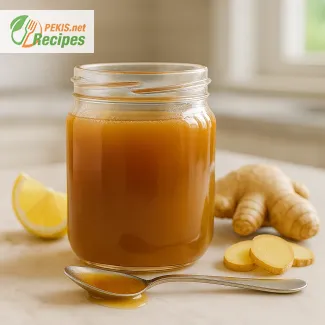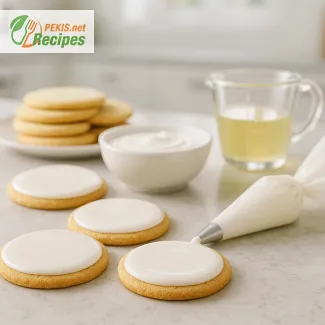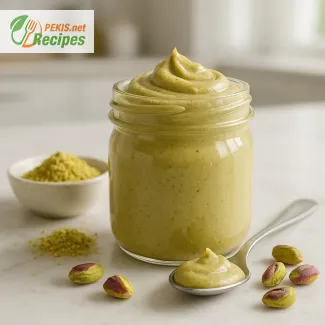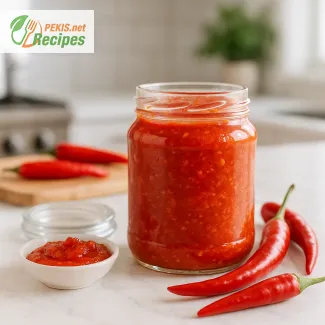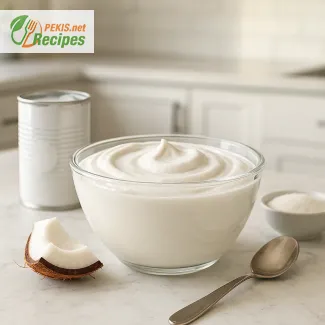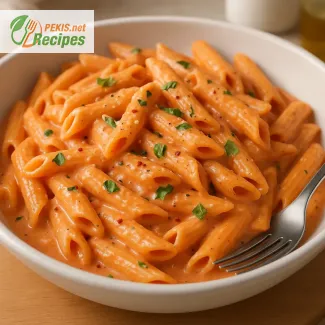
Irresistibly Velvety Pink Pasta That’s Taking Over Dinner Tables
A rich, vibrant blend of tomato and cream that turns every bite into comfort
Few pasta dishes have captivated food lovers as quickly and completely as Creamy Pink Sauce Pasta, the latest sensation making waves across Instagram and modern kitchens alike. This strikingly beautiful and deeply satisfying dish combines the best of two beloved sauces—robust tomato sauce and luxurious cream sauce—into one irresistible, velvety creation that feels both indulgent and approachable. It’s no wonder that this rosy-hued pasta has quickly risen to fame, becoming a must-try for foodies, busy home cooks, and pasta purists alike.
At first glance, it’s the gorgeous blush-pink color of the sauce that draws you in—a perfect pastel blend that looks like it belongs on a magazine cover or a curated plate in an upscale bistro. But the magic lies in the taste: a delicate yet flavorful balance of tangy tomato, rich cream, savory garlic, and just the right hint of spice and umami from parmesan and seasonings. The creamy tomato base wraps itself around every strand of pasta, delivering warmth, depth, and complexity with every forkful.
This pasta is more than just a trend; it’s a comfort food revival, reimagined for today’s aesthetic and culinary desires. Think of it as a hybrid between the classic Marinara and the indulgent Alfredo, offering a flavor profile that’s bold yet smooth, simple yet sophisticated. Its visual appeal and bold flavors have made it a viral favorite, but it’s the comforting, crave-worthy taste that keeps people coming back to their kitchens to make it again and again.
What makes pink sauce pasta so unique?
The genius behind pink sauce is its duality—it brings together the brightness of a traditional tomato base with the silky texture of a creamy sauce. The tomato sauce lends acidity and body, while the cream softens its sharpness and adds richness. Together, they form a harmonious sauce that’s elegant without being fussy. Add garlic, onions, a dash of chili flakes, and a generous handful of freshly grated parmesan, and you’ve got a sauce that’s as layered in taste as it is in color.
Another defining element is its flexibility. While it's traditionally made with penne or rigatoni, it can easily be paired with other pasta shapes like fettuccine, farfalle, or even gnocchi. This adaptability makes it ideal for quick weeknight dinners or more elaborate weekend meals. Want to boost the protein? Add grilled chicken, crispy pancetta, or sautéed shrimp. Craving vegetables? Stir in some spinach, zucchini, or roasted cherry tomatoes. The base is versatile enough to carry a variety of additions while maintaining its luxurious essence.
The role of cream and tomato in creating the perfect balance
It’s all about achieving the right ratio. Too much tomato and the sauce leans too acidic; too much cream, and it becomes overly rich. The key lies in blending equal parts tomato passata and heavy cream, then seasoning with garlic, onion, and a touch of Italian herbs. The result is a silky, blush-colored sauce that clings perfectly to the pasta, delivering an even coating of flavor in every bite.
The texture is another star feature—creamy but not heavy, smooth but not overly thick. It satisfies in a way that’s comforting without being overwhelming. This is why pink sauce pasta is especially beloved as a midweek meal: it feels like a treat without requiring hours in the kitchen.
A social media darling that delivers in flavor and aesthetics
The dish’s massive popularity online stems not only from its taste but also its eye-catching appearance. It photographs beautifully, making it an instant hit on Instagram, TikTok, and Pinterest. Food bloggers and influencers love it because it combines simplicity with elegance, making it the perfect content for reels, carousels, and tutorials.
But behind the viral photos lies a dish with real culinary value. It’s not just trendy—it’s delicious. And unlike some fleeting food fads, pink sauce pasta has the staying power to become a staple in many households. Its bold flavor, gorgeous presentation, and ease of preparation make it a go-to recipe that appeals to beginners and seasoned cooks alike.
Why creamy pink pasta is here to stay
What sets this pasta apart is its universal appeal. It’s kid-friendly, yet sophisticated enough for dinner parties. It works for romantic dinners, family meals, or quick lunches. The ingredients are pantry staples in many homes—tomato puree, cream, pasta, cheese, garlic—but together, they create something far greater than the sum of their parts.
And the sauce itself invites personalization. Spice lovers can add more chili flakes or a dash of hot sauce. Cheese enthusiasts can melt in extra parmesan or even pecorino romano. For a touch of freshness, a sprinkle of basil or parsley right before serving adds brightness and a burst of herbaceous flavor.
Whether served in minimalist bowls or plated with finesse, this creamy pink pasta brings elegance and comfort to the table. It’s a reminder that sometimes the best meals are those that are simple, satisfying, and made with love—and maybe just a little bit of flair.
An everyday pasta with gourmet appeal
Despite its elegant appearance, pink sauce pasta is surprisingly quick and easy to prepare. Most versions can be made in under 30 minutes, making it a dream for busy weeknights. But that speed doesn’t come at the expense of depth—each element builds upon the next, creating a sauce that feels both homey and elevated.
In a world full of overly complicated recipes, this one stands out for its simplicity and flavor. It’s no surprise that it has become such a favorite for so many. With just a handful of quality ingredients and a little bit of kitchen love, anyone can recreate this creamy, dreamy dish at home.
- Cook the pasta: In a large pot of boiling salted water, cook pasta until al dente according to package instructions. Reserve 60 ml (¼ cup) of the cooking water before draining. Set pasta aside.
- Sauté the base: In a large sauté pan, heat olive oil over medium heat. Add finely chopped onion and cook for 4–5 minutes until translucent. Add minced garlic and sauté for 1 more minute until fragrant.
- Add tomato passata: Pour in the tomato passata and bring to a gentle simmer. Cook uncovered for 5–7 minutes until slightly thickened.
- Incorporate cream: Reduce heat to low and slowly stir in the heavy cream. Mix well until fully combined and the sauce turns a smooth pink color.
- Season and flavor: Add chili flakes, salt, black pepper, and half of the parmesan. Stir to combine. Simmer for another 3 minutes.
- Combine with pasta: Add the cooked pasta directly to the sauce along with the reserved pasta water. Toss everything together over low heat until the pasta is well coated and the sauce is silky.
- Finish with cheese and herbs: Sprinkle remaining parmesan and chopped basil on top. Serve immediately while hot.
Creative Upgrades to Elevate Your Pink Sauce Pasta Experience
Flavor-enhancing additions, healthier swaps, and expert tricks for a perfect result every time
The popularity of creamy pink sauce pasta has grown immensely due to its satisfying flavor and visually stunning presentation, but even the most beloved dishes can benefit from thoughtful refinement. Whether you're a culinary enthusiast or a home cook looking to impress, there are multiple ways to enhance this classic dish and make it uniquely your own.
Below are carefully curated tips and expert insights into transforming the standard recipe into something even more flavorful, balanced, and tailored to your personal preferences. From ingredient substitutions to advanced techniques and health-conscious changes, these ideas will help you take your pink pasta to the next level.
The power of cheese: going beyond parmesan
While parmesan cheese is the go-to choice for its nutty, salty complexity, switching it up can add a new dimension to your sauce. Consider:
- Pecorino Romano: Adds a sharper, more tangy edge that contrasts beautifully with the creaminess of the sauce.
- Grana Padano: Slightly milder but still rich and aromatic, ideal for a more subtle flavor.
- Cream cheese: For a velvety, slightly tangy finish that deepens the texture of the sauce.
Each of these cheeses will enhance the richness and mouthfeel of the sauce while allowing room for variation in flavor intensity.
Adding umami: deepening the flavor profile
To bring out savory, umami-forward notes, try incorporating a small quantity of:
- Sun-dried tomatoes: Finely chopped and folded into the sauce, they intensify the tomato base and add chewiness.
- Anchovy paste: A tiny amount melted into the sautéed onions provides depth without tasting fishy.
- Miso paste: Unconventional but effective, especially white miso for its mellow, earthy flavor.
These additions help balance the sweetness of the cream and acidity of tomatoes, providing a more rounded and satisfying result.
Customizing the heat and spice levels
The pinch of chili flakes in the standard recipe offers gentle warmth, but you can modify this to match your preferences:
- For more heat: Add Calabrian chili paste, hot paprika, or a few drops of chili oil.
- For a smoky dimension: Use chipotle powder or smoked paprika.
- For subtle warmth: Infuse the olive oil with a whole chili pepper during the onion sautéing stage and remove before serving.
Making it more nutritious without sacrificing taste
There are several nutrient-dense ingredients that blend beautifully with the pink sauce while increasing the meal’s health benefits:
- Baby spinach or kale: Stirred in just before serving, they wilt slightly and integrate seamlessly.
- Zucchini or bell peppers: Sautéed beforehand and added to the sauce, they lend sweetness and texture.
- Red lentil pasta or whole grain pasta: These alternatives offer higher protein and fiber, and pair well with creamy sauces.
These ingredients subtly improve the nutritional profile while maintaining the comfort and appeal of the original dish.
Why homemade beats restaurant versions
When you prepare this dish yourself, you maintain complete control over ingredient quality and balance. Restaurant versions often contain more salt, cream, and butter to appeal broadly to diners. In contrast, at home:
- You can use fresh, organic tomatoes and herbs.
- Adjust salt and fat levels to suit dietary needs.
- Select premium-quality pasta and cook it to perfect doneness.
Homemade versions are also free of preservatives and artificial thickeners, making every bite more wholesome.
Common mistakes to avoid when making pink sauce
Even simple recipes can fall short if not executed properly. Be mindful of the following pitfalls:
- Overcooking garlic: This can turn the flavor bitter and overpowering. Always add garlic after onions are translucent.
- Adding cream too early: High heat can cause it to separate. Lower the heat and stir it in slowly.
- Neglecting pasta water: This starchy water helps the sauce adhere better and creates a smoother consistency.
- Skipping seasoning: Even with flavorful ingredients, underseasoned sauce tastes flat. Taste and adjust at every stage.
Avoiding these mistakes ensures a more refined, restaurant-quality result at home.
Protein pairings that work
While this pasta is satisfying on its own, it also pairs wonderfully with proteins. To keep the flavor balance right:
- Grilled chicken: Adds lean protein without overpowering the sauce.
- Sautéed shrimp: Their sweetness and firmness contrast beautifully with the creamy texture.
- Crispy pancetta or bacon: For extra richness and saltiness, add crisped meat for a crunchy finish.
Each of these enhances the umami depth and creates a more substantial main dish.
Herbs and aromatics to finish strong
A final flourish of fresh herbs or citrus zest can elevate the entire experience:
- Fresh basil: Classic, fragrant, and ideal for freshness.
- Parsley: Bright and clean, perfect if using heavier cheeses or meats.
- Lemon zest: Adds lightness and counters richness.
- Thyme or oregano: Earthy notes for a rustic variation.
Finishing with fresh aromatics enhances aroma, flavor complexity, and visual appeal.
Making it dairy-free without compromise
For a lactose-intolerant or vegan-friendly version, try the following swaps:
- Coconut cream or oat cream instead of dairy cream. They maintain texture and integrate well with tomato.
- Cashew-based cheese sauces or nutritional yeast for the cheesy depth.
- Olive oil in place of butter or animal fat to keep it plant-based.
These substitutions allow you to retain the sauce’s signature creaminess while adapting it to dietary needs.
Turning pink pasta into a baked dish
For a heartier option, turn your pink sauce pasta into a baked pasta dish:
- Mix cooked pasta with the pink sauce and half of the cheese.
- Transfer to a baking dish, top with more cheese and breadcrumbs.
- Bake at 190°C (375°F) for 15–20 minutes until golden and bubbly.
This variation adds a crispy top layer and makes the dish more suitable for gatherings or meal prep.
Master the art of personalization
Ultimately, the charm of creamy pink sauce pasta lies in its flexibility. Whether you're enriching it with cheese, packing it with veggies, or refining the seasoning, every tweak helps you shape the dish to reflect your taste and lifestyle. The key is to be thoughtful with each addition—enhancing, not overwhelming, the delicate balance between tomato and cream that makes this dish so beloved.
Allergens present in the recipe
- Milk (parmesan, heavy cream)
- Wheat/gluten (pasta)
Tips to make the recipe allergen-free
- Replace heavy cream with unsweetened oat cream or soy cream to avoid dairy.
- Use nutritional yeast instead of parmesan for a dairy-free cheesy flavor.
- Substitute traditional wheat pasta with gluten-free pasta made from rice, corn, or lentils.
- Vitamin A: 850 IU – supports immune system and vision.
- Vitamin C: 12 mg – boosts immune response and improves iron absorption.
- Calcium: 220 mg – important for bone health and muscle function.
- Iron: 2.1 mg – supports oxygen transport and energy metabolism.
- Potassium: 480 mg – essential for heart function and fluid balance.
- Magnesium: 45 mg – important for nerve function and muscle relaxation.
- Phosphorus: 190 mg – contributes to bone structure and energy use.
- Lycopene (from tomato passata): 6.5 mg – protects cells from oxidative stress, supports heart health.
- Beta-carotene (from basil): 0.4 mg – supports skin health and immune system.
- Vitamin E (from olive oil): 1.9 mg – protects cells from damage and supports circulation.
